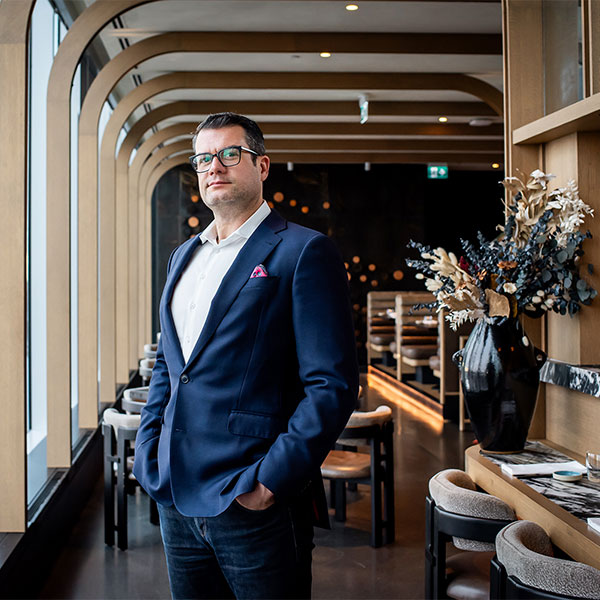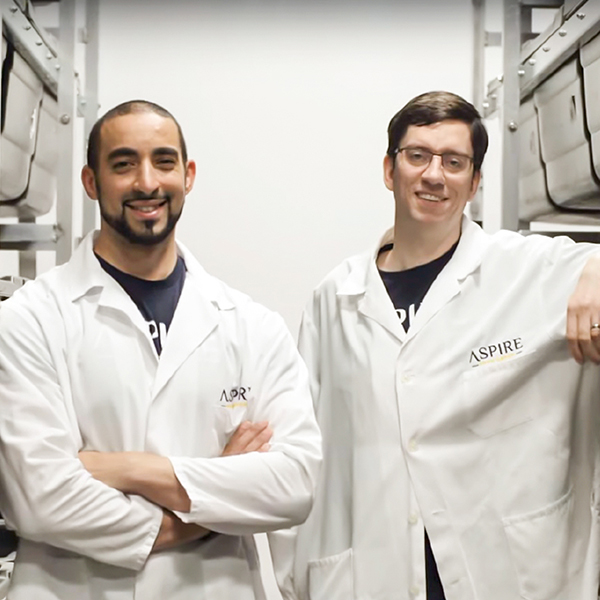Eight years ago, Yalmaz Siddiqui, BCom’92, returned to McGill to speak to business students interested in sustainability. At the time, Siddiqui was the vice president of corporate sustainability at MGM Resorts International, and he warned the students not to expect an easy ride as they pushed for change.
“You have to routinely accept being told ‘no,’ since the businesspeople you’re trying to influence are often skeptical of sustainability programs,” he said.
Siddiqui would know: at the time he had already spent more than a decade trying to bring an environmental focus to the corporate world.
Today, he is still at it, working as the vice president of environmental sustainability at the Walt Disney Company. But if he were to speak to students today, he might offer slightly different advice.
“There are more ‘yeses’ along the journey” now, he says.
“There’s a new norm that companies have environmental goals. Almost every Fortune 500 company has environmental goals that are being pursued. There’s more media attention, more awareness of environmental issues, and also technology advancement – some years ago solar [power] was 10 times more expensive than it is today.”
Environmental advocacy is usually associated with non-profit organizations and activists who are fighting against profit-driven ecological destruction. But Siddiqui is an inside man, pushing companies to achieve tangible environmental goals by changing the way they do business.
“I’m a businessperson by interest but I also felt that it was important for us to think about business in the context of society. I wanted to make environmental sustainability my career.”
Yalmaz Siddiqui, the vice president of environmental sustainability at the Walt Disney Company
“Many people think the environment is something ‘out there’ and people who think about it are activists,” he says. “I don’t think that way at all. I think of it from the standpoint of, ‘Where is the business value in environmentally progressive activities?’”
That’s a question Siddiqui began asking when he started his business studies at McGill in 1989, although in hindsight, his environmental awareness came even earlier than that.
“I grew up in a small mining town in Zambia,” he says, explaining that his father worked for some of the mining companies that drove the country’s economy. “This open-pit mine was in front of me. I could see the pollution and also a lot of poverty outside the little idyllic community we lived in.”
Fast forward to McGill, where Siddiqui was browsing through the stacks at the McLennan Library when he came across a copy of Small is Beautiful: A Study of Economics as if People Mattered. Written by British economist E.F. Schumacher and first published in 1973, the book makes the case that economic decisions are driven by relationships and values as much as financial concerns.
Reading the book, something clicked in Siddiqui’s mind. “I hadn’t thought before [then] that business has a responsibility to reduce its impact on the landscape, and it also has a responsibility to help people.”
That’s not a controversial point of view today, but things were different in the early 1990s. “I found no one in my cohort was talking about broader social and environmental issues. It was all business, all the time,” says Siddiqui.
“I’m a businessperson by interest but I also felt that it was important for us to think about business in the context of society. I wanted to make environmental sustainability my career.”
After graduating from McGill, Siddiqui enrolled in an environmental and development master’s program at Cambridge University, which at the time was one of the only postgraduate programs in the world focusing on business and ecology.
“After the masters, I was kind of gung-ho to work for the World Bank or a non-profit of some sort. But almost invariably people I spoke to told me I was a rare bird.” He had the benefit of being environmentally aware while also having the kind of business acumen that enables him to relate to companies trying to make a profit.
Even a recruiter for the World Bank advised him to get a job at a large corporation, where he could influence the decisions that were made there. “That’s the better way to make a positive impact on the world,” he was told.
His first environmental job was for Office Depot which at the time was the world’s largest seller of paper. When he started, almost nobody in the industry had any knowledge of whether the forests that paper was being sourced from were being managed sustainably.
Ten years later, nearly all of the company’s paper was being supplied by vendors that had independent third-party certification ensuring that forests weren’t being razed illegally or unsustainably.
It was good for the environment, but also good for Office Depot’s bottom line: Siddiqui says sales of “environmentally preferable products” increased from US$1 billion to $3.2 billion in the decade he worked at the company.
After leaving for MGM, Siddiqui worked to make the company’s resorts and casinos less wasteful in terms of their water use and led efforts focused on food waste reduction and sustainable sourcing.
Now he is at Disney, arguably the world’s biggest and best-known name in the entertainment industry.
One of the projects he is focusing on at Disney involves the enormous amount of energy required by the company’s many different operations, from hotels to theme parks to movie productions.
“We are around 37 percent renewable power now,” he says. The company’s goal is to reach 100 percent by 2030. To achieve that, it is building solar arrays at its theme parks so the company can produce its own energy – one such park, Hong Kong Disneyland, is now the largest solar site in the city.
Siddiqui says Disney is also collaborating with one of its biggest competitors, Netflix, to develop a battery-powered generator to replace the diesel generators typically used on film sets. “It’s completely new technology [designed] to decarbonize the movie industry,” he says.
The skepticism Siddiqui faced in his early years has shifted from within the corporate world to outside of it. “Greenwashing” is the term used by environmental activists that criticize corporations who make a show of being environmentally responsible without actually having any real impact.
“There might be some degree of greenwashing out there,” Siddiqui admits. But he argues the bigger risk today is of “greenhushing,” which is a new term used to describe companies that shy away from publicizing their environmental initiatives – or worse, avoid embarking on them altogether – because they fear criticism from across the political spectrum.
“It’s punishing companies for not being fast enough or perfect enough,” he says.
But the enormous size of multinational corporations is exactly why they have a potential for real impact – and it’s what keeps Siddiqui going. “The journey toward change is always complex,” he says. “It’s become easier but it’s not always straightforward. But we want progress. We want momentum.”


